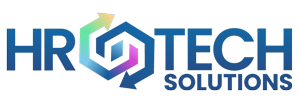Future Trends in HRIS: What to Expect in the Next 5 Years
As technology continues to evolve, so too does the landscape of Human Resource Information Systems (HRIS). Over the next five years, we can expect several trends to reshape how organizations manage their human resources. From enhanced automation to a greater focus on employee experience, here’s a look at what the future holds for HRIS.
- Increased Automation and AI Integration
Streamlining HR Processes
Automation has already begun to play a crucial role in HRIS, and this trend will only accelerate. Expect to see more sophisticated AI-driven tools that handle repetitive tasks such as data entry, payroll processing, and benefits administration. These technologies will allow HR professionals to focus on strategic initiatives rather than administrative burdens.
Smart Decision-Making
AI will also enhance decision-making capabilities by providing predictive analytics. HRIS platforms will analyze data trends to help organizations anticipate turnover, identify skills gaps, and recommend training opportunities, allowing for more proactive talent management.
- Enhanced Employee Experience Focus
Personalized User Interfaces
As organizations recognize the importance of employee engagement, HRIS will become more user-centric. Expect personalized dashboards that provide employees with tailored information about their career development, benefits, and learning opportunities. This customization will foster a more engaging and intuitive user experience.
Integrated Well-Being Programs
Incorporating well-being initiatives into HRIS will become increasingly important. Expect to see features that track employee wellness, offer mental health resources, and encourage work-life balance. By prioritizing holistic employee well-being, organizations can enhance productivity and retention.
- Greater Emphasis on Data Security and Compliance
Enhanced Security Protocols
As data breaches become more prevalent, the demand for robust security measures in HRIS will rise. Future systems will implement advanced encryption, multi-factor authentication, and real-time monitoring to protect sensitive employee information.
Compliance Automation
With ever-evolving regulations, HRIS will increasingly automate compliance tracking. This will help organizations stay ahead of labor laws and regulations, reducing the risk of costly fines and penalties while ensuring a fair and equitable workplace.
- Remote Work Adaptations
Virtual Collaboration Tools
The shift toward remote work is here to stay, and HRIS platforms will adapt accordingly. Expect integrations with collaboration tools that facilitate virtual teamwork, making it easier for remote employees to stay connected and engaged.
Remote Onboarding Solutions
HRIS will increasingly include features that streamline the onboarding process for remote employees. This will involve virtual training modules, digital document signing, and socialization tools to help new hires feel connected from day one.
- Advanced Talent Management Features
Skill-Based Hiring
Future HRIS will place a greater emphasis on skills rather than traditional qualifications. Expect features that allow organizations to assess and map skills within their workforce, enabling more strategic hiring and development decisions.
Continuous Feedback Mechanisms
Annual performance reviews are becoming outdated. Future HRIS platforms will incorporate continuous feedback tools, allowing for real-time performance assessments and goal adjustments. This shift will promote a culture of ongoing development and support employee growth.
The next five years promise to bring exciting advancements in HRIS, driven by technological innovation and a focus on employee experience. By embracing these trends, organizations can enhance their HR processes, improve employee engagement, and ultimately drive better business outcomes. As we move forward, staying informed and adaptable will be key to leveraging the full potential of HRIS in the evolving workplace landscape. The future of HR is bright—are you ready to embrace it?


.jpg?width=352&name=Blog%20Banners%20(42).jpg)
.jpg?width=352&name=Blog%20Banners%20(29).jpg)